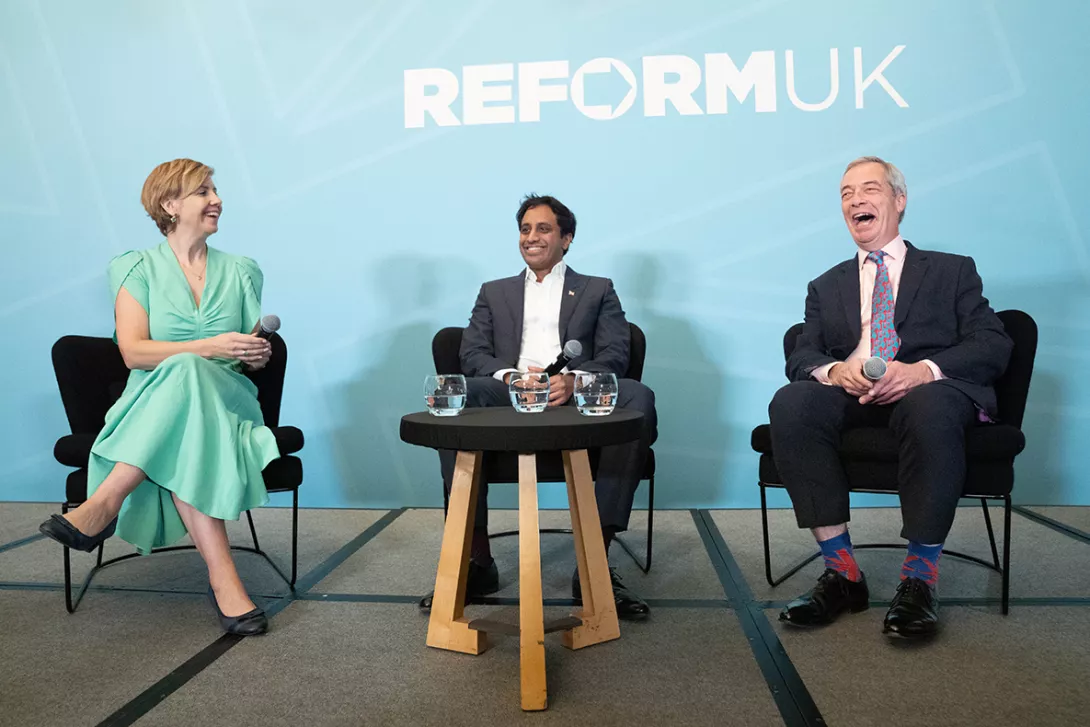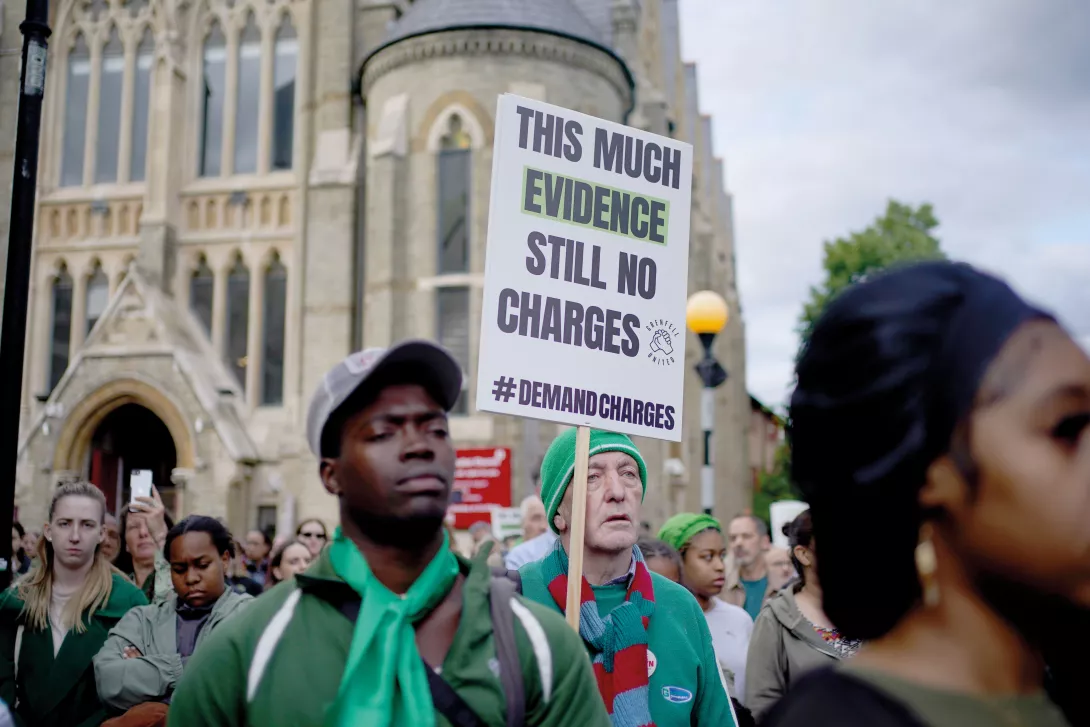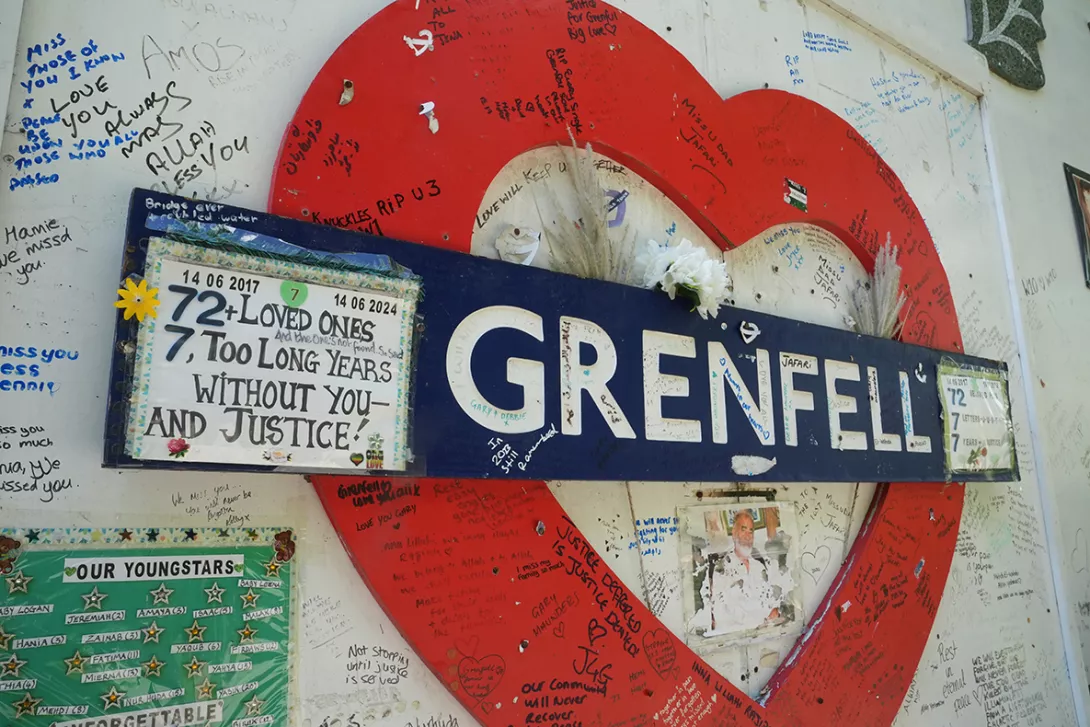
IF ONLY it were that easy.
Keir Starmer has removed a large portrait of Margaret Thatcher from a place of prominence in Downing Street. It has been hung elsewhere in the building, in a room the Prime Minister uses less, apparently.
Perhaps her eyes followed him around the room. Certainly, her ideas do. It would take a full bell-book-and-candle exorcism — Arthur Scargill would be an appropriate master of ceremonies — to expel Thatcherism from Number Ten or, for that matter, the veins of the Labour Party.
There is no sign of that being attempted. Even if her likeness were to be consigned to some gloomy attic, the late Tory icon would sit athwart the political process yet.
Her fingerprints are everywhere. One example will surely be found in the forthcoming report into the Grenfell disaster.
The long road to that catastrophe began with the deregulation of building regulations under Thatcher, the privatisation of construction works by local authorities, the social marginalisation of council house dwellers and pervasive cost-cutting in the public sector, including among those supposed to supervise compliance with such rules as remained.
Grenfell was thus a calamity made in Thatcherland from beginning to end.
How many of those depredations are actually to be reversed by the new government? Not a great deal, it would seem.
Rachel Reeves seems to be as committed to removing regulations on business as she is to balancing the books on the backs of the weakest.
On housing, Angela Rayner may be talking a good game but her plan to build more homes appears to rely overwhelmingly on private construction firms, with the government’s role confined to scrapping planning restrictions. Whatever the merits of that as a policy, it is fully congruent with neoliberal principles.
Nor will many of the houses be allocated to those on local authority waiting lists. The pre-Thatcher days, when living in council homes was entirely normal and not stigmatised as an indication of failure, are not coming back anytime soon.
If the Grenfell report does what it should it will be an indictment of nearly 50 years of neoliberalism. It is a moment when all portraits of Thatcher should be turned to face the wall.
Once Labour was the party of the council tenant. It was such once again in 2017 when Jeremy Corbyn won plaudits for his empathy on a visit to the residents of the west London tower block right after the fire.
Labour is instead now the party of the private landlord. Step forward Jas Athwal, Labour MP for Ilford South.
He owns 15 residential properties in his neighbourhood — he was also the leader of Redbridge Council until his election to the Commons in July — and many of them are apparently in a dilapidated condition, all mould, ants and fire alarms adrift from their moorings.
Just to complete the Rachman vibe, the management company Athwal appointed to run this little empire for him reportedly menaces any tenant who wants less mould, fewer ants etc. Athwal does not even seem to have acquired the correct landlord licences under a scheme that he himself introduced as council leader.
Athwal, a “renters’ champion” in his own mythology, says he is very angry and distraught — “shocked and sickened” no less — at these revelations. He has dispensed with his managing agents and promised some form of compensation to the tenants.
He also has the largest landlord portfolio of any MP, usurping a title held by a Tory from the days when the stones of Old Sarum sent two of them to Parliament.
And there are now more landlords on the Labour benches in the Commons than on the Tory, a development surely unforeseen by Keir Hardie.
In the 19th-century political division of labour within the ruling class, the Tories had the landlords and the Liberals got the hard-faced men of business.
Starmer’s government has all bases covered, however.
It was revealed last week that former Network Rail boss Lord (Peter) Hendy, now Labour’s Rail Minister, had successfully menaced a contractor, when in his previous gig, into firing an engineer who spoke out about safety risks at Euston station.
That seems to be the key Gradgrind demographic on board for the government.
Athwal and Hendy remain unsanctioned, while on the other hand, or on the other class front, seven MPs are whipless because they voted against the two-child cap on benefits, one of those “tough decisions” Reeves has taken to avoid upsetting the City.
Athwal had a high-level defender moreover — Commons leader Lucy Powell. She brushed aside suggestions at the weekend that this exploiter should not be a Labour MP.
Nor was that the end of Powell’s Thatcher tribute act. Like many others, she had bought tickets for the Oasis reunion tour next year, we learn.
They had cost her £350 each, despite being advertised for sale at £150. This was as a consequence of what is called “surge pricing” under which the cost of a commodity increases hour-by-hour as you queue to purchase it as a result of high demand — something entirely predictable in this case.
Was the Commons leader upset? Powell averred that she did not “particularly like it” but added, “It is the market and how it operates.” No looking back in anger there.
Wherever Thatcher’s portrait now hangs, she must be smiling on a Labour cabinet member’s bland acceptance that if the market trebles the price of something to a purchaser who has waited for hours to buy it, at the very last moment, that is just the way things are.
The problem is not Powell. Unlike some other members of the Cabinet, she is not a Thatcherite true believer.
She is merely typical of the transmogrification of the Labour Party from what it was into what it now is, a party of slum landlords, surge pricing and sacking whistleblowers. It is a squalid box, but she cannot think outside of it.
Thatcher herself said that her greatest achievement was “forcing my opponents to change” and regarded Tony Blair’s New Labour as her monument. Even she might be surprised that 34 years after she left office, her outlook still dominates both parties of government.
Hegemony is a lot more fun than hanging on a wall. And a lot harder to take down. But that is the task we face, and the Prime Minister will be no ally there.
The ghosts of Haditha
The pictures are sickeningly familiar. A five-year-old girl shot in the head, lying in bed next to her mother and siblings.
In another frame, four children aged 10 and under are lying dead in bed, again with their mother, all killed by gunshot.
A four-year-old from next door, shot in the head from six feet away entwined with the corpse of his mother, who died in a last effort to protect her child.
Outside five young men, unarmed, lying dead beside the car from which they had been dragged and slaughtered.
None of it Gaza, as it happens. These are pictures just published, after a long struggle to secure their release, in the New Yorker magazine.
They depict the massacre in the Iraqi town of Haditha in 2005 by US Marines in one of the most notorious war crimes of that depraved occupation.
No marine paid a price for their bloody rampage in Haditha, and seeing the pictures it is not surprising that the Pentagon wanted to block their publication. A senior marine described the episode as “the cost of doing business” in occupied Iraq.
The images remind us, most vividly, that the genocide in Gaza is not an aberration, nor an indication of a unique evil in the Israeli state.
It is the normal currency of imperialism, for which Arab lives, like those across the global South, have long been accounted worthless.
The 40,000 dead Palestinians are added to numberless victims of imperial violence in the region, including millions in the course of this century alone.
Haditha to Rafah, they are manifestations of the colonial and neocolonial violence that is, and will always be, a pillar of capitalist civilisation.
















